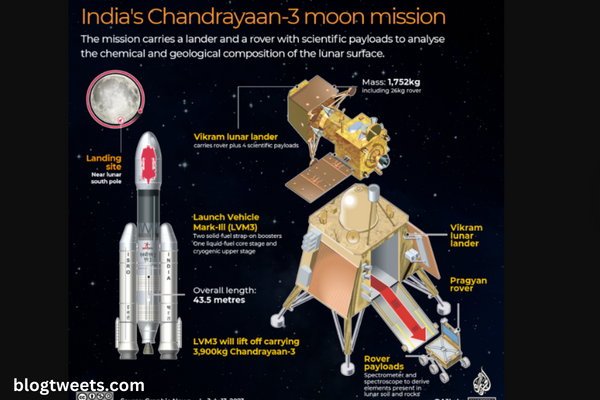Erdogan claims he would accept a runoff in the presidential race

Early on Monday, Turkish President Recep Tayyip Erdogan, who has been in power for 20 years, was in a tight race for the presidency, with a potential runoff against his main rival while the votes were being counted.
Whether the results are announced soon or after a second round of voting takes place in two weeks, they will determine whether Erdogan maintains control of a NATO ally that borders Syria and Iran while straddling Europe and Asia or reverts to the more democratic course pledged by his main rival, opposition leader Kemal Kilicdaroglu.
Erdogan, 69, said in a speech to supporters in Ankara that he may still win but would respect the country’s choice if the election went to a runoff vote in two weeks.
“We still don’t know if the first round of voting was successful. Early on Monday, Erdogan remarked, “If our nation has decided for a second round, that is also good. Votes from Turkish residents living abroad still need to be counted. In 2018, he received 60% of the vote from abroad.
Domestic issues like the economy, civil rights, and a February earthquake that claimed more than 50,000 lives dominated this year’s race. However, Erdogan’s unconventional economic management and frequently erratic but effective attempts to position Turkey at the heart of international negotiations also kept Western countries and foreign investors interested in the conclusion.
Voter support for the incumbent had fallen below the threshold necessary for him to win reelection with an absolute majority when the unofficial count was almost finished. 45% of the vote went to Kilicdaroglu, while 49.3% went to Erdogan, according to the state-run news agency Anadolu.
Kilicdaroglu, 74, the candidate of a six-party alliance, asserted that Erdogan had lost the confidence of a population now calling for change and that “we will definitely win the second round… and bring democracy.”
The Supreme Electoral Board, which oversees elections in Turkey, declared that it was giving rival political parties results “instantly” and would make the results known once the count was finished and official.
The board reported that the majority of the 3.4 million abroad voters who were qualified to cast ballots still needed to be counted and that a runoff election on May 28 was not guaranteed.
Erdogan is most likely to have the upper hand in a runoff since the president’s party is most likely to perform better in the parliamentary election that was also held on Sunday, according to Howard Eissenstat, an associate professor of Middle East history and politics at St. Lawrence University in New York. Voters wouldn’t prefer a “divided government,” he claimed.
Since 2003, Erdogan has served as either the president or the prime minister of Turkey. Prior to the election, polls had shown that the increasingly authoritarian leader was just behind his opponent.
Members of Kilicdaroglu’s center-left, pro-secular Republican People’s Party, or CHP, contested Anadolu’s early results, claiming the state-run organization was biased in favor of Erodgan despite the partial results suggesting otherwise.
The opposition, according to Omer Celik, a spokesman for Erdogan’s Justice and Development (AK) party, is engaged in “an attempt to assassinate the national will.” He labeled the charges made by the opposition as “irresponsible.”
While Kilicdaroglu ran on pledges to reverse crackdowns on free speech and other forms of democratic backsliding as well as to repair an economy battered by high inflation and currency devaluation, Erdogan hopes to win a five-year term that would keep him as Turkey’s president well into his third decade.
The 600-seat Turkish parliament, which has lost much of its legislative authority since a referendum to switch the nation’s style of government to an executive presidency barely passed in 2017, was also re-elected by voters.
According to the Anadolu news agency, support for a pro-Kurdish party was around 10%, while Kilicdaroglu’s Nation Alliance had roughly 35% of the vote and Erdogan’s ruling party alliance hovered around 49.4%.
The fact that the election results are not official does not alter the fact that the country has picked us, according to Erdogan.
Nearly 89% of the eligible population—more than 64 million people, including the abroad voters—voted. Turkey became a republic and a modern, secular state on the ruins of the Ottoman Empire 100 years ago this year.
Turkey has a history of high voter turnout despite government restrictions on free speech and assembly over the years, particularly after a failed coup attempt in 2016. Erdogan launched a massive assault on state personnel with claimed ties to Fethullah Gulen and pro-Kurdish politicians after attributing the failed coup to the followers of the cleric and erstwhile ally.
The elections were viewed as a test of a united opposition’s capacity to unseat a leader who has attempted to increase his influence on the international arena while consolidating practically all state authority in his hands.
Erdogan assisted in mediating a deal between Ukraine and Russia that permitted Ukrainian grain to travel from Black Sea ports to the rest of the world despite Russia’s conflict in Ukraine. The deal, which is carried out by an Istanbul-based center, is due to expire soon, so Turkey sponsored negotiations last week to extend it.
Erdogan, meanwhile, has also stalled Sweden’s attempt to join NATO while demanding concessions, claiming that country was too lenient against supporters of the cleric with a base in the United States and members of pro-Kurdish groups that Turkey views as dangers to national security.
The president’s harsh leadership style, according to detractors, is to blame for the excruciating cost-of-living crisis. According to the most recent official statistics, inflation is currently at 44%, down from a peak of 86%. The opposition adopted the onion as a campaign emblem to raise awareness of the price of vegetables.
Erdogan claims that high interest rates cause inflation, which is contrary to conventional wisdom, and he has repeatedly pressed the Central Bank of the Republic of Turkey to decrease its key rate.
Erdogan’s administration came under fire for reportedly responding to the 7.8-magnitude earthquake that damaged 11 southern regions too slowly and inadequately. The number of fatalities and suffering is claimed to have increased due to lax enforcement of construction codes.
Erdogan tried to win over voters during his election campaign by utilizing resources provided by the government and his sway over the media. He said that the opposition supported LGBTQ+ rights, which he claimed threatened traditional family values in the largely Muslim country, and that they were “drunkards,” conspiring with “terrorists,” and terrorists.
The Turkish leader promoted local infrastructure and defense projects while raising wages and pensions and subsidizing energy and gas prices in an effort to win support.
The university professor, Eissentat, stated that “paychecks, or putting food on the table, doesn’t necessarily surmount the identification one feels for one’s own political party.” “Erdogan’s efforts at polarization, the demonization of the opposition as traitors and terrorists, the use of culture wars,… that’s all made to play on those dynamics.”
If it were to win both the presidential and parliamentary elections, Kilicdaroglu’s Nation Alliance made a promise to convert Turkey’s political system back to a parliamentary democracy. Additionally, it pledged to reestablish the central bank’s and judiciary’s independence.
“Democracy has been sorely missed by all of us. After casting his ballot at an Ankara school, Kilicdaroglu said, “We all missed being together.
Sinan Ogan, a former academic who was running for president as well, received more over 5% of the votes cast thus far and was supported by an anti-immigrant nationalist party.








